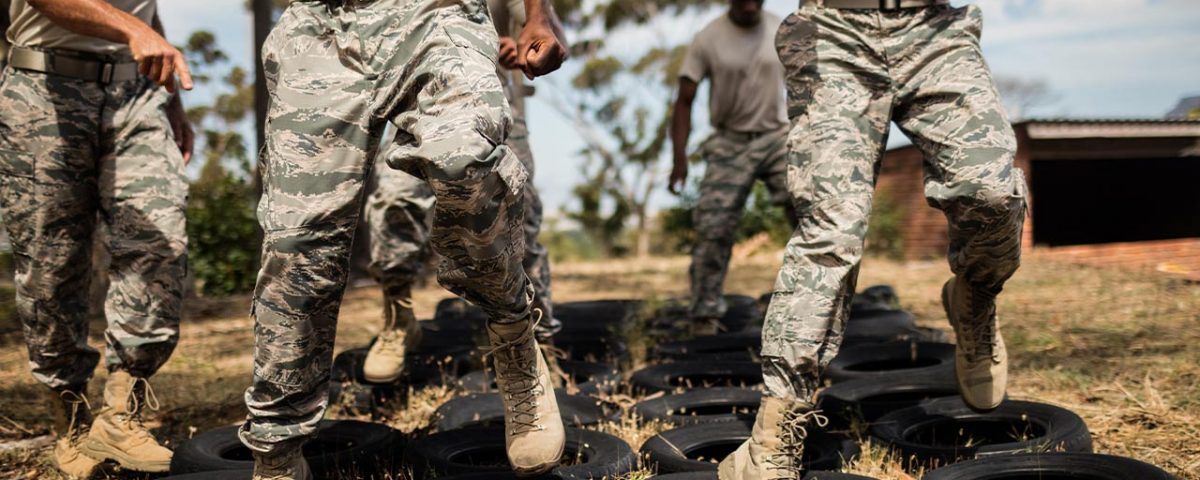Major contributing factors of disorders like anorexia and bulimia nervosa in the military are military training and culture. Especially common risks of developing an eating disorder in the military are height and weight standards, learned survival tactics, and training.
Height and Weight Standards
A military eating disorder discharge could happen to service members who fail to meet these means, severely disrupting their careers. If you don’t meet the weight standard, you are measured with a tape measure.
If you are within a certain range, you are considered “muscular,” and will meet the weight requirements. If you fail, you are put on a “diet plan” and given a timeframe to lose weight.
This can lead to food restriction and feelings of shame and guilt around food. It can lead to negative feelings towards one’s own body, and the perception of being “lazy and undisciplined,” especially in the combat arms units.
I know firsthand as I was always taped, and while I always fell into the first category I felt like an outcast due to being “overweight”. In basic training, service members are taught to eat fast, as it instills “discipline”.
This practice is replicated during the enlistment period. Many veterans report difficulty enjoying mealtimes or not being able to eat with family years after leaving the military.
This can also contribute to negative emotions around food, as well as shame and guilt in one’s own ability to eat “normally”. While this practice may serve to save an individual’s life in the military, it can destroy one in civilian life.
Learned Survival Tactics
Additionally, in combat arms and more elite units, we were taught to do as much as we can with as little as possible. In Ranger school, for example, we stayed awake for multiple days, and at times had one meal every other day.
Those who could push themselves to the limit were rewarded and looked up to by other service members. While this serves to increase stress and weed out the “weak,” it’s a mindset that can continue well after leaving the service.
Seeing food as a limiting factor and learning to do more with less contributes to many types of eating disorders. While I never developed an eating disorder, I did get into ultra-sports.
Running fifty miles at a time with as little food as possible was the goal. But of course, I found out I did much better when I had more food.
Training and Body Image
Body image also plays a role in the development of military eating disorders. “Warriors” are lean muscular individuals with endurance.
While we want our country’s warriors to be strong and ready for combat, they are human as well. They are not immune to the effects of these practices.
We need to assist them in readjusting to civilian life and provide support for them when the mission is over. There is a lack of services for servicemembers, which may be due to the lack of awareness concerning eating disorders in military members.
At Banyan Treatment Centers, we are prepared to address the unique needs of our service members. We have built the first eating disorder program which is part of the VA’s care in the community network.
Our Banyan rehab locations also offer addiction treatment for veterans and active-duty personnel via our Veterans in Recovery program, which includes services like medically monitored detox, substance-specific treatment, and more.
If you know a veteran or are a veteran who is struggling with these issues, please feel free to contact myself or our eating disorder team at 888-280-4763 to learn how to get started.
Related Reading:
Are Eating Disorders Genetic?
Celebrities with Eating Disorders








